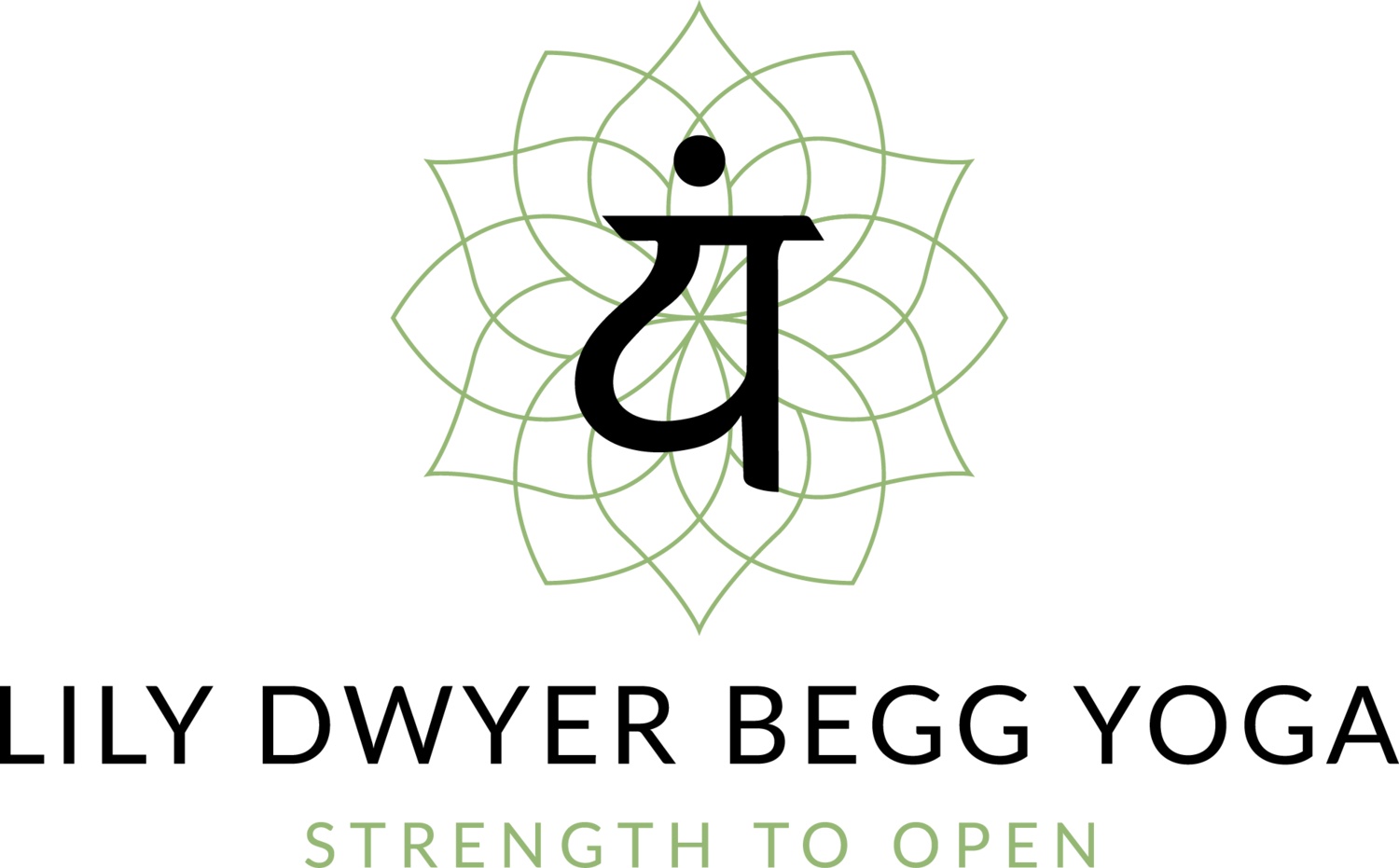August Theme: Shoulders
The hips and shoulders are big physical and energetic traffic hubs of the body connecting limbs to trunk. We need to move clearly and directly through our hips and shoulders to get where we want to be heading in our postures. The hips and shoulders can also be sites for big traffic jams: injury - stagnation from lack of mobility and articulation - weakness - imbalance - and/or - lack of mind/body mapping or proprioception.
Comparatively speaking, our femur (thigh) is surrounded by bone in its ball and socket joint, whereas our humerus (upper arm) has a shallow ball and socket contact. In arm motion, only 30% of the head of the humerus is in contact with the glenoid fossa. This makes the GH (glenohumeral) joint both extremely mobile and extremely vulnerable. Biomechanically, our bodies are designed to stand, to walk, to be bipedal and upright. We subvert this in yoga. We use our shoulders a lot! We get to spend time in quadriped mode which helps to release tension in the lower back, awaken the belly, and enliven our ability to breathe deeply into the circumference of our ribcages. We spend a ton of time in the “vinyasa” transition of Chaturanga to Upward Facing Dog. As we progress in skill and agility, we practice inversions like Handstand and Forearm Stand on our arms with feet up.
Because we are distributing our weight into our hands and shoulders so much, it is imperative we understand the proper actions of alignment and physiological cues to keep those shoulders stable, mobile, and healthy and avoid overuse injuries that can incur from well-intentioned but mistaken/injurious/poor biomechanical cues like “draw the shoulderblades down the back as the arms reach overhead”, “melt the heart in forearm stand”, or “lower your chest to the floor in Chaturanga”. (Danger - don’t do these things!)
This month we move through well rounded Sunday flows with a special emphasis on the shoulder stability, safety, longevity, and mobility.
Did you know your shoulder is made up of four joints (sites where 2 bones come together) on each side? Because of the mobility and complexity of this joint, it is important that we understand how to safely maneuver on the mat for the benefit and longevity of our shoulders. They can be particularly vulnerable to overuse or misuse injury and repetitive strain if we move through yoga without a detailed understanding of how to use our bodies well and cohseively in this holistic practice.
4 Joints of the Shoulder:
In the front:
1. Breastbone and Collarbone
2. Collarbone and Scapula
On the side:
3. Upper arm and Scapula ball and socket (glenohumeral)
In the back:
4. Scapula and ribcage
Practitioner Questions for Reflection:
Are you having a hard time feeling stable in your scapula kicking up into forearm stand?
Are you perplexed about how to align that Chaturanga Dandasana?
Are you unsure of how to activate your shoulders in Handstand?
Are your shoulders a limiting factor in your Upright Bow/Wheel pose?
Are you actually standing on your shoulders in Shoulderstand and Bridge pose or do you lack the mobility or technical understanding to articulate this alignment?
Do you feel chronic postural strain or carry your tensions in your neck, chest, shoulders, and upper back?
Can you activate the bottom edges of your scapula?
Do your scapula glide fluidy on your ribcage?
Do you feel well rounded in your pushing and pulling strength?
Do you feel well rounded in your shoulder flexibility left to right, front to back?
Do you have a dominant arm?
Do your scapula “wing” off your back in Plank Pose?
Do you have a stoop (kyphosis) in your thoracic spine?
Do you have scoliosis?
Have you played a sport and developed a dominant arm, or held/fed/bounced a baby for years on one side? How do you feel imbalances in shoulder strength, dominance, weight favoring, and flexibility showing up in your practice?
Can you find cohesive strength between your arms and your back to work in integrated, cohesive patterns in poses like Backbends and Inversions?
Class Plan for August:
8/1/21
Unwind tension from your neck, chest, and shoulders flow
including
The perfect Chaturanga Clinic
AND
Some fun non-chaturanga transitions to cross train your yoga shoulders woven into a solid sink your teeth in vinyasa flow
8/8/21
Shoulder Flexion & External rotation of the upper arms Glenohumeral Rhythm
Featuring Peak Poses:
Dancer Pose
AND
Forearm Wheel
8/15/21
GUEST STAR
Gabriella HIIT and YIN
8/22/21
Protract Your Scapula
Nail the transition into Forearm Stand without a wild donkey kick
AND
Handstand Conditioning
8/29/21
Shoulder Extension
Learn to make a yoga strap Jet Pack
AND
The perfect set up for Shoulderstand and Bridge: turn your shoulders into two plush pillows to prop up your heart
